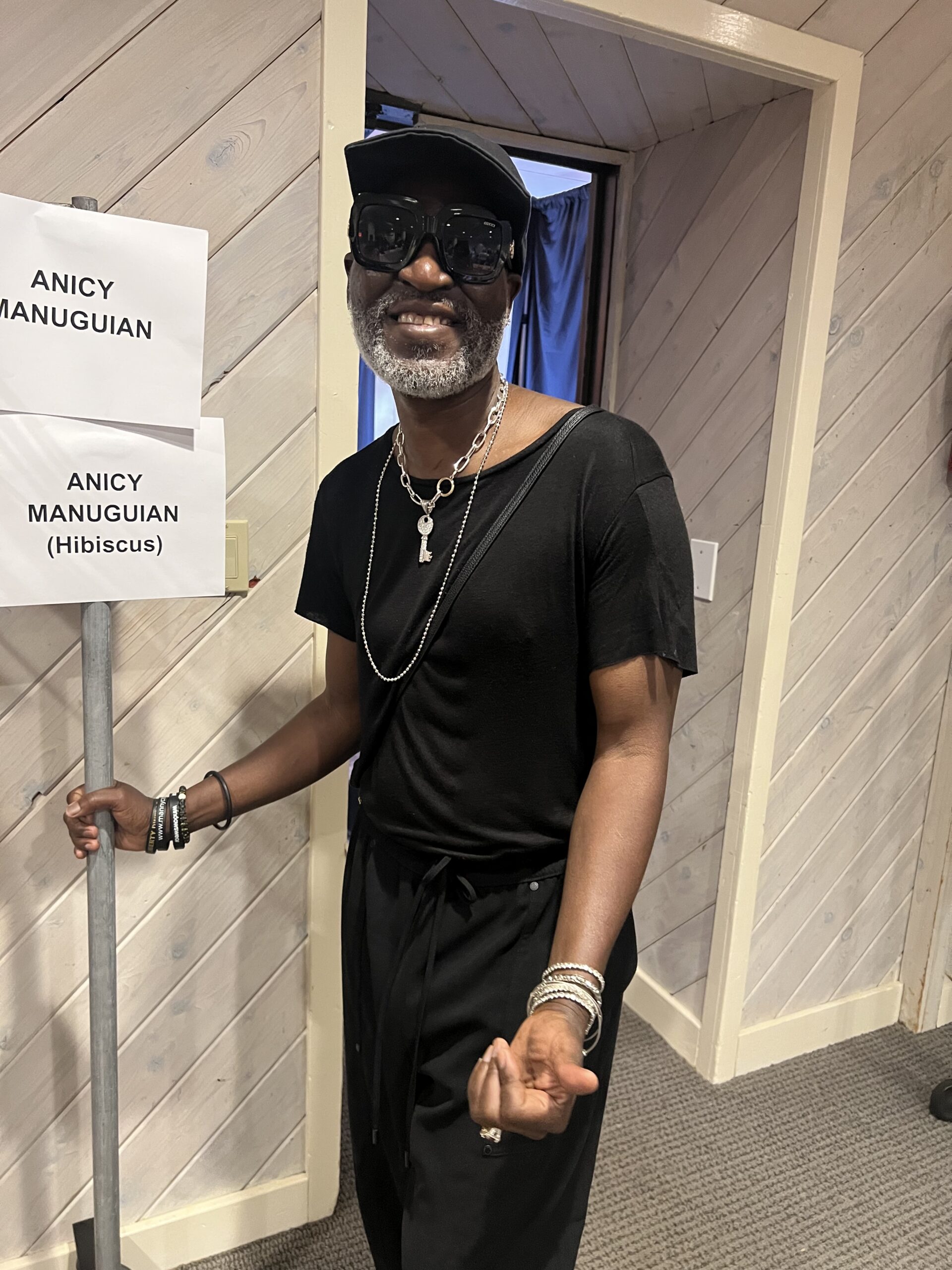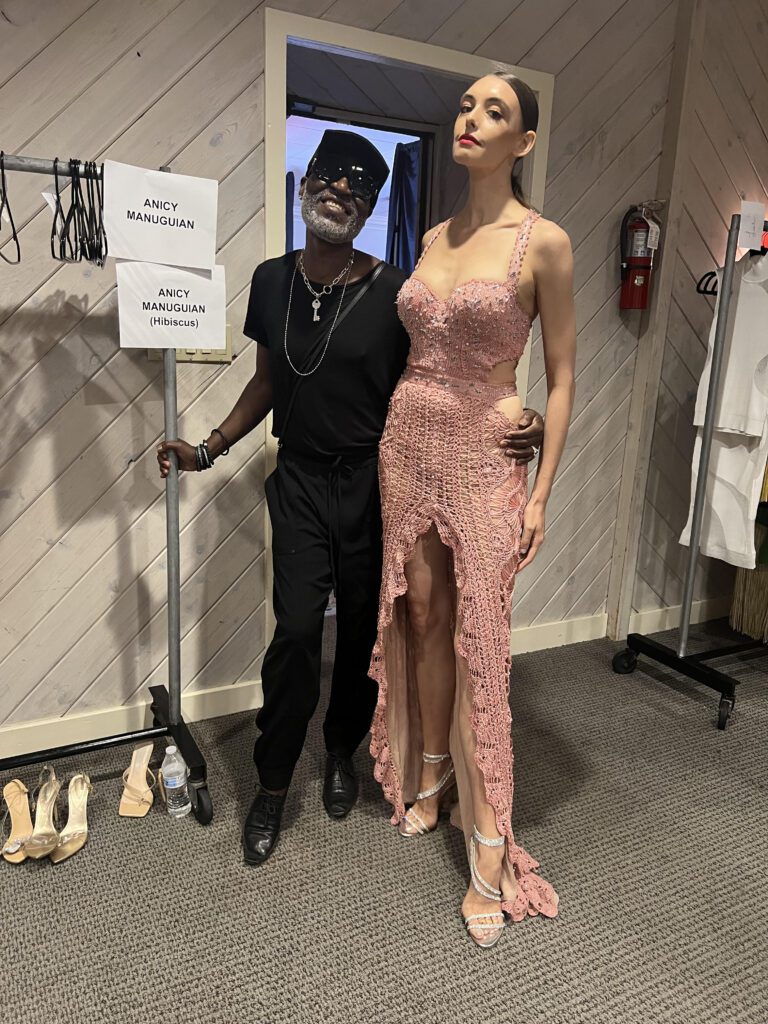
Ricky Davy :The Next Big Thing
Rick Davy is the Founder and Director of BK Style Foundation (BKSF) and the Creative Director and Producer of Fashion Week Brooklyn (FWBK). His Vison and dedication create avenue for emerging designers around the world. Ricky Davy and BK Style Foundation are now taking their talents around the Globe with their up Brooklyn fashion week international show taking place in London this October.
Rick Davy is the Founder and Director of BK Style Foundation (BKSF) and the Creative Director and Producer of Fashion Week Brooklyn (FWBK). Originally from Trinidad, Rick spent years traveling between New York and Montreal while training to be a professional dancer. Eventually, he became a full-time assistant manager at NYU Tisch School of the Arts film department and studied photography and film production. This led him to work as a production manager on music videos, including some by hip hop legends Jay-Z and Big Daddy Kane. Rick’s interest in fashion grew, and he started photographing professional models’ portfolios, often selecting their clothes and looks. He then attended classes at the Fashion Institute of Technology.
In 1998, Rick met Wendy Fitzwilliam, a fellow Trinidadian and Miss Universe, and became her stylist. This led him to work as a stylist for other Miss Universe winners and beauty pageant winners as well. His work in the pageantry industry allowed him to travel to various locations around the world. During this time, Rick also served as the Creative Director and Fashion Consultant for numerous clothing brands. Later, he worked as a director for national and international magazines and curated fashion shows. He also worked as a wardrobe stylist for the talk show “Forgive and Forget”
Here at Garnette report we pleasure of speaking with Ricky Davy on his latest expansion in London fashion week.
Zoey: What inspired you to start the BK Style Foundation and Fashion Week Brooklyn?
Ricky: Because nothing like that was happening in Brooklyn. Brooklyn has its own unique character and vibrancy. Many artists had studios in Brooklyn because it was more affordable back then, and it needed to establish itself before becoming what it is today. I had the idea of creating something like my own 5th Avenue, even pitching it to a few developers, though they didn’t find it feasible at the time. I’ve always enjoyed bringing things together and helping designers hone their skills.
Zoey: How did your experiences as a stylist for Miss Universe and other beauty pageant winners shape your career?
Ricky: A friend introduced me to it, but I had a natural knack for it. I took a few classes at FIT, but I believe it’s a natural talent, especially if you have a passion for fashion and the creative arts. I’ve always admired what designers do, though I never aspired to be one myself. Working with Miss Universe was enjoyable and interesting, and I had the opportunity to travel and style the contestants. Social media was not as prevalent back then; we might have had MySpace, but it wasn’t widely used.
Zoey: Could you share some highlights from your work as a Creative Director and Fashion Consultant for clothing brands?
Ricky: Some of the highlights included working with various brands to gain recognition and exposure on television. I’ve been involved with BK Fashion Week for 17 years, and I’ve also provided consultation to designers, helping connect them with business managers. My approach has always been that you can be as creative as you want, but you also need to manage the business side effectively.
Zoey: How did your role as a wardrobe stylist for CBS and BET shows contribute to your success with BK Fashion Week?
Ricky: It was all about networking. Having a strong network and community is vital. Building a community, working with other designers, and understanding the inner workings of big brands was key. During that time, there was significant support from the urban community, with streetwear and hip-hop gaining prominence.
Zoey: Can you tell us about the growth and impact of Fashion Week Brooklyn over the years?
Ricky: We were one of the first to focus on diversity in the runway. Instead of using only tall and skinny models, we aimed to provide opportunities for our community and showcase local talent. Many people in our community didn’t have access to events like “7th on Sixth,” and many brands didn’t host their own shows back then. We believe we helped change that. We were also one of the first to promote streetwear, upcycling, and sustainability, which was referred to as “eco-fashion” back then. We championed emerging designers and built a large community of designers.
Zoey: Can you tell us more about Brooklyn Fashion Week International’s show in London and its significance for BK Fashion Week?
Ricky: Brooklyn has always been our base, but we’ve always featured international designers because we consider ourselves global. We’ve had designers from Germany, Saudi Arabia, Kuwait, and other parts of the world. I wanted to expand the idea that Brooklyn is not just a borough but a global entity. There are talented emerging fashion designers from all around the world, not just in Brooklyn. We’ve taken this idea on the road with our first show in London, which is actually called Brooklyn Fashion Week UK. We hosted our first digital fashion week show in the UK last April to establish our presence in London and the UK.
Zoey: How does Fashion Week Brooklyn go beyond the runway to impact community development and raise awareness for social causes?
Ricky: Social causes have been integral to what we do from the beginning. It’s especially important in the fashion industry, where everyone gets dressed every day. Whether you’re into fashion or not, you express yourself through what you wear, so there’s a fashion component to everyone’s life. I believe people are more fashion-conscious now than in the past. We’ve used initiatives like “casual Friday” or “dress-up Friday” to encourage people to express their style beyond just wearing a suit. This openness has allowed us to raise social awareness. One of our key events is “Denim Day,” which started in response to a young woman in Italy who was sexually assaulted. Because she was wearing tight jeans during the attack, the judge dismissed the case. This event has been instrumental in highlighting the power of fashion to send messages and raise social awareness.
Zoey: What is the mission behind Fashion Week Brooklyn’s global sustainability initiative and how does it bridge fashion and community?
Ricky: Sustainability is essential for helping young people launch their careers. This season, we initiated our first residency with Materials for the Arts, which provides donated items and materials from larger brands to support NYC arts nonprofits, public schools, and city agencies. We’ve been members for over eight years and have taken some of our designers there to help them source materials. At these centers, designers can access a wide array of materials for free. Another event we organize is Sustainable Fashion Week, which emphasizes vintage, upcycling, and swapping. These categories are crucial because they teach people that they don’t always have to buy new; they can swap or upcycle, becoming part of a global collective.



